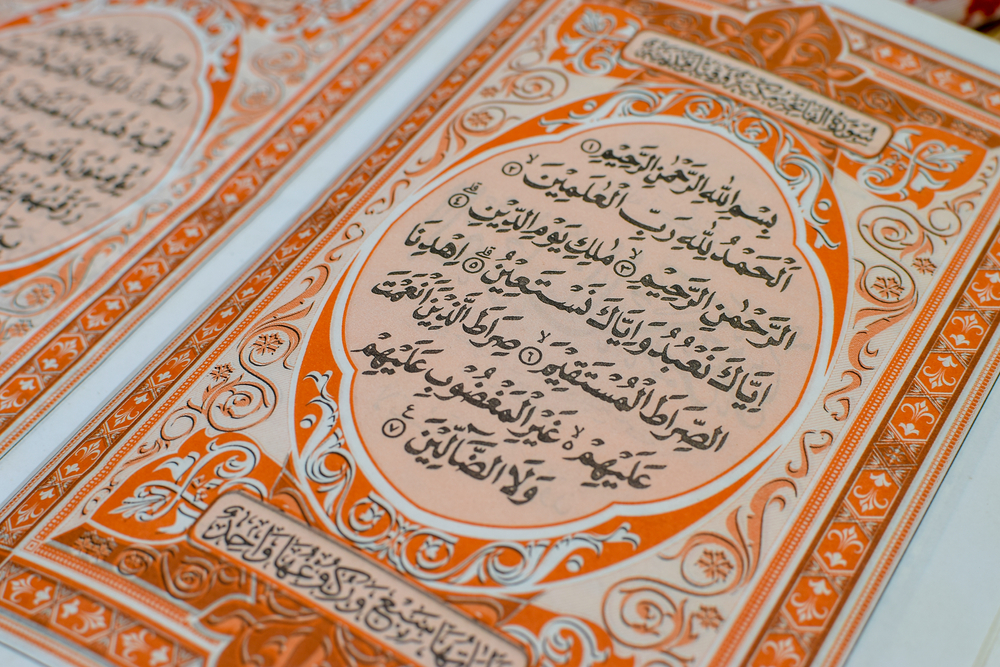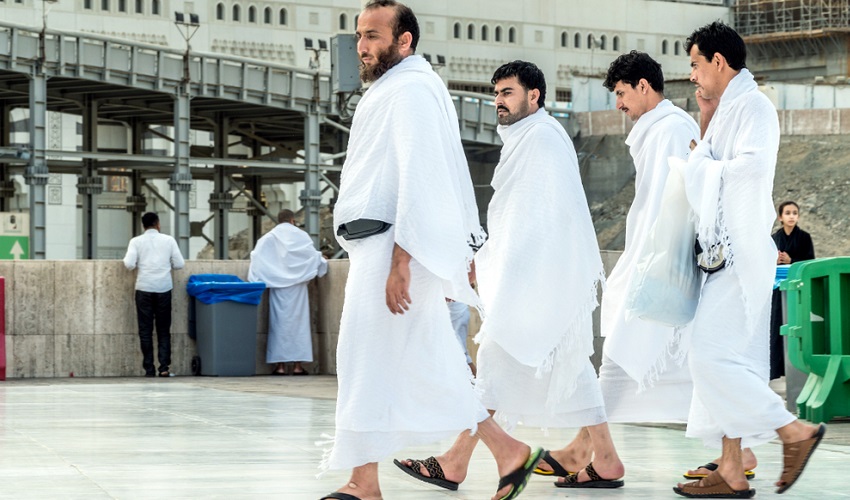Followers of Islam consider declaring Niyyah, also known as Niyat, to be a crucial step of performing a ritual prayer. Niyyah for Ihram can be explained as the determination in one’s heart to execute the act of Ihram for the sake of Allah. In simple words, it refers to the intention of performing an act of worship. It is an essential prerequisite for performing any Ibadat. The rationale behind it is that Niyyah distinguishes the holy acts of worship from the ordinary acts of daily life. Moreover, it differentiates between the type and level of worship, whether the act of praying is obligatory or supererogatory.
According to Umar B. Al Khattab, the Prophet maintained that the result of deeds is based on the intentions of the performer. And, an individual is rewarded in accordance with what is in their mind and heart when they are carrying out the deed.
Umrah Niyat dua is of utmost importance among the rituals performed during Umrah. In this blog, we discuss the significance of Niyat and its requirements in detail.
Niyyah in Umrah
The journey of Umrah is divided into four major steps, that is, Ihram, Tawaf, Sayi, and lastly, Qasr. All these steps are considered equally important for the pilgrimage. Umrah Niyat dua is an integral part of the first step of the journey, which is Ihram or cleansing. When purifying oneself for the holy journey to Makkah, only donning the clothes of Ihram is not enough. Instead, it is establishing the intention to perform the deed that causes one to enter into the state of Ihram.
According to Islam, one must make the intention to perform Umrah before crossing Miqat, which is the principal boundary where Umrah and Hajj performers adorn Ihram garments. Crossing Miqat without entering Ihram is considered unlawful and requires expiation. Also, certain obligations need to be followed after one enters Ihram.
Performing Niyyah for Ihram
When performing Niyyah for Ihram, one should remember that the intention should not be necessarily uttered by the tongue. Instead, it should come from the heart of the pilgrim. During Umrah, if the verbal intention pronounced by a pilgrim varies from what lies in his/her heart, then the latter is given precedence over the former. In fact, many Islamic scholars believe that since Niyyah is made by heart, pilgrims do not need to utter it verbally. Moreover, there is no evidence that the Prophet or his companions ever said Niyyah aloud before any prayer.
Besides, Muslims believe in performing certain acts of Sunnah when entering the state of purity. According to Islamic beliefs, a pilgrim before declaring their intention to enter the stage of Ihram should take a purificatory bath. Donning white clothes, whether new or cleaned used ones, is recommended. After establishing the intention for the holy journey, one should refrain from wearing the prohibited clothes and choose outfits that are not sewn or felted to the body. Also, men should take care to not wear shoes sewn to fit the foot.
How to make Niyyah for Umrah?
During the minor pilgrimage to Makkah, one needs to recite Umrah Niyat dua before beginning the journey. When making the intention of Ihram, a pilgrim first needs to pray two Rakahs. One should recite Surat al-Kafirun for the first rakah after Fatihah and Surat al-Ikhlas for the second Rakah. Once this is done, the pilgrim must face Qiblah and say,
“O Allah, here I am to perform Umrah. O Allah, I intend to perform Umrah. O Allah, I intend to perform Umrah, so accept it from me and make it easy for me.”
Next, men going for Umrah must recite Talbiyah out loud, while women should utter it in a low voice. During the prayer, they should say,
“O Allah, I obey your order. I obey you one time after the other. O god, I obey your order. You are the one who does not have any partner. I obey you one time after the other. You are the one who deserves to be praised and thanked. Every endowment is from you. You are the one attributed with dominion. There is no partner with you.”
After reading Talbiyah, one must pray to Allah to raise the rank of the Prophet. He/she should ask the almighty to accept his/her deeds and protect him/her from the hellfire. Pilgrims can make a prayer for themselves and their loved ones after this.
Obligations after performing Niyyah for Ihram
Once pilgrims make the Umrah Niyat dua, they should follow certain obligations. And, these are as follows:
- Crossing Miqat without entering the state of purification is considered an Ihram violation.
- Applying perfume or anything with fragrance on the body after making the intention for Umrah requires expiation.
- Wearing clothes dyed in saffron or safflower for 12 or more hours is an Ihram violation.
- Touching al-Rukn Yamani, al-Hajar al-Aswad, or Multazam such that a fragrance attaches itself to your hands or face is not recommended.
- Wearing clothes that are stitched or sewn to fit the shape of the body after making the intention for Ihram is not permissible.

- Applying henna to the whole palm is prohibited and considered an Ihram violation.
- Covering a quarter of the face or head for men and the whole face for women for 12 hours or more requires expiation.
- Wearing footwear that does not reveal the ankle for over 12 hours requires expiation.
- Clipping the nails of both hands and feet in one sitting requires expiation.
- Sexual relations, whether intentionally or forgetfully, after entering the state of Ihram are prohibited.
Notably, Niyyah for Ihram is an essential step that one must perform before undertaking the holy pilgrimage. When making the intention to perform the minor pilgrimage, one must bear in mind the above-mentioned obligations and make Umrah Niyat dua with a pure heart.
Niyyah For Ihram FAQs
What is Niyyah?
Niyyah, also known as Niyat, is a crucial step of performing a ritual prayer. Niyyah can be explained as the determination in one’s heart to execute an act for the sake of Allah.
What is Umrah Niyat Dua?
Umrah Niyat dua is an integral part of the first step of the journey, which is Ihram or cleansing. When purifying oneself for the holy journey to Makkah, only donning the clothes of Ihram is not enough. Instead, it is establishing the intention to perform the deed that causes one to enter into the state of Ihram.
What is Miqat?
Miqat is the principal boundary where Umrah and Hajj performers adorn Ihram garments. Crossing Miqat without entering Ihram is considered unlawful and requires expiation.
What is to be remembered when performing Niyyah?
When performing Niyyah for Ihram, one should remember that the intention should not be necessarily uttered by the tongue. Instead, it should come from the heart of the visiting pilgrim.
What is to be done while reciting Rakah?
One should recite Surat al-Kafirun for the first rakah after Fatihah and Surat al-Ikhlas for the second Rakah.










